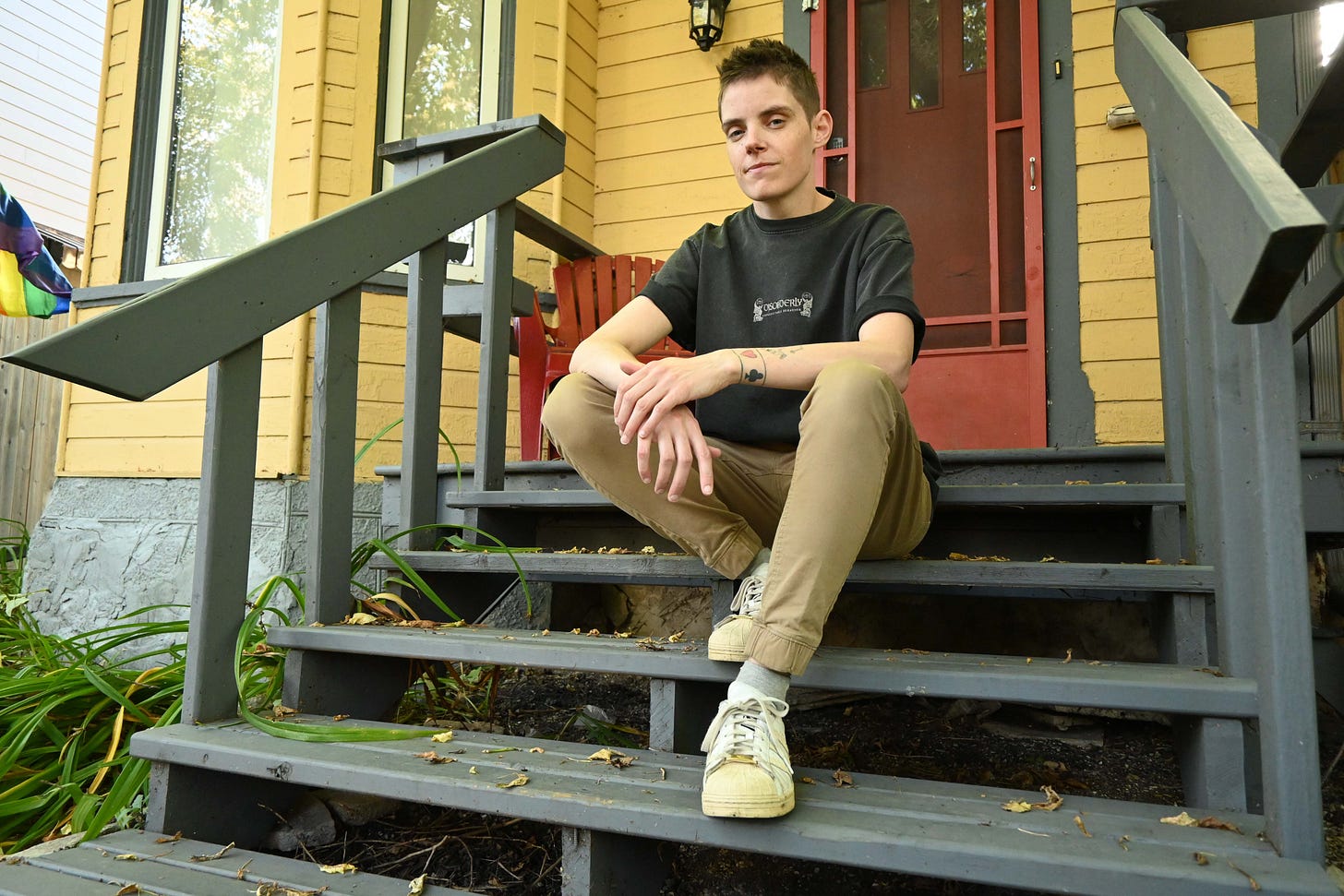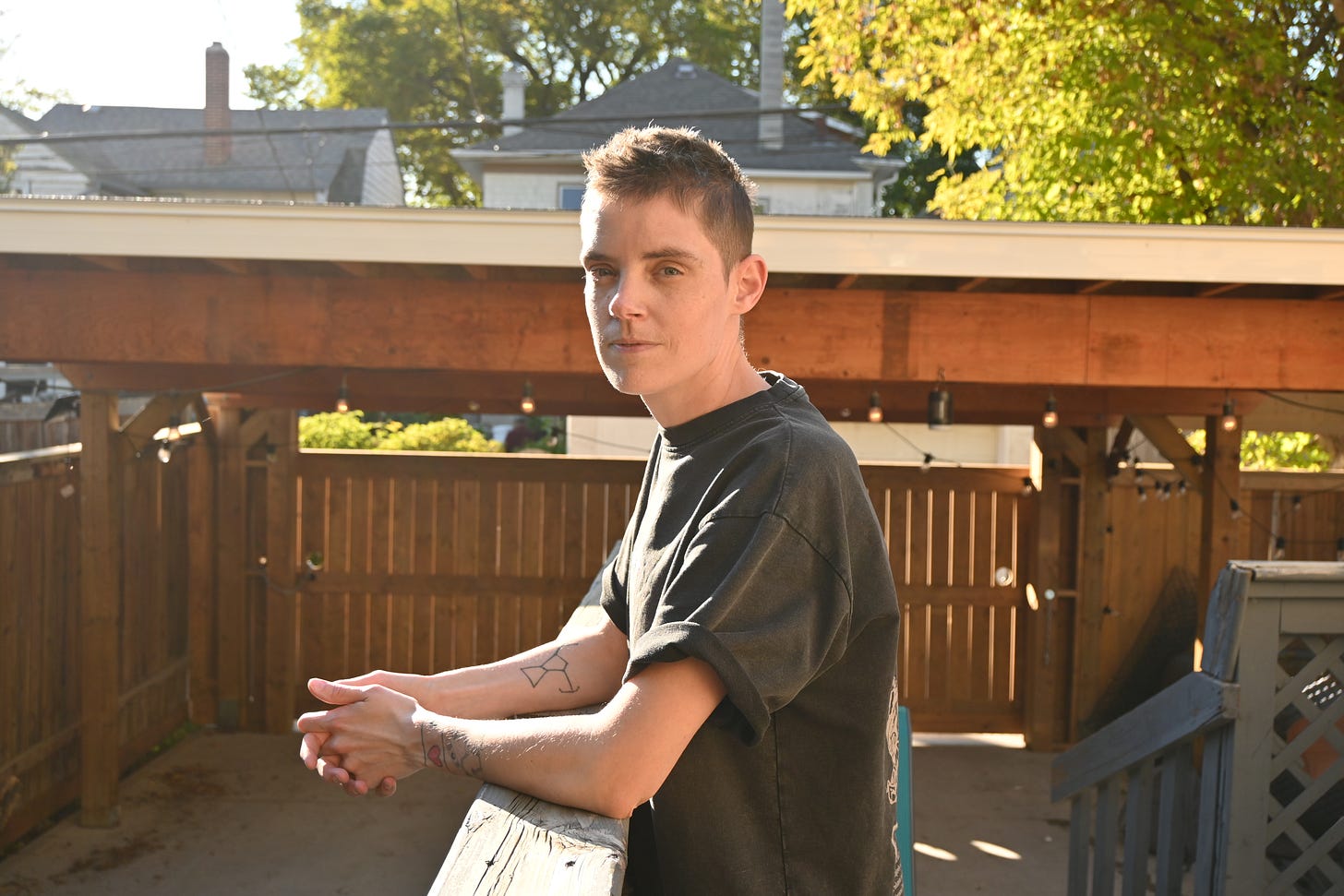Gaps in rural health care are hurting Manitoba's trans community, say advocates.
More needs to be done to make queer people feel safe in rural Manitoba health care, advocates say
Queer advocates and experts are raising concerns that trans people don’t feel safe accessing health care in rural Manitoba and that there aren’t enough resources to meet the community’s needs.
Parker Morran, a trans social worker in Winnipeg, said trans people who grow up in rural towns face many barriers when seeking health care like long travel distances, under-educated caregivers, and discrimination.
“You don’t know how safe you’re going to be at the clinic or hospital because those same people (providing care) might go to your church or they might be friends with your mom,” said Morran, who uses they/them pronouns.

They added this causes many trans people to avoid the health care system because they’re scared of being outed.
Winnipeg’s Klinic Community Health centre is the only dedicated facility in Manitoba to provide gender-affirming care.
The next best option outside of Winnipeg is the Trans Health Clinic in Brandon, which operates one day a month and has one doctor, according to the Prairie Mountain Health authority’s website.
“A stupid thing to say to your patient”
In July, the provincial government announced it would reduce barriers to gender-affirming care, by removing the need for two medical referrals, and by allowing more doctors and nurses to provide referrals for surgeries and hormone treatments.
While the Morran sees change as positive, they said many doctors aren’t willing to offer gender-affirming care.
Morran grew up in Kleefeld, a small town with less than 2,000 people west of Steinbach, Man.
In 2020, They went to their doctor in Steinbach and said they wanted to start transitioning and get a referral for gender-affirming treatment.
What Morran got instead was a “long rant” on how transitioning doesn’t align with Christianity.
“I just laughed at him and said, ‘this is a stupid thing to say to your patient,’” said Morran, who now lives in Winnipeg.
“I know that I’m not the only person who he said things like that to.”
Morran was forced to travel to Klinic in Winnipeg to get the treatment they needed — a 69 km drive.
A 2021 study from Brandon University found it’s common for queer people living in rural Manitoba to experience discrimination and stigma when asking for gender-affirming care.
All 12 study participants said they were denied health care by their doctor or nurse at some point, with doctors citing either knowledge gaps or personal beliefs in their reasoning.

More needs to be done to improve the health care resources available to the rural queer community, said Nadine Henriquez, an associate nursing professor at Brandon University and co-author of the study.
She said education on gender-affirming care needs to be improved and more investment in queer-friendly health care spaces can help close the existing gaps.
“It’s an expectation for health care professionals to identify their own knowledge gaps and seek out that knowledge, and not expect our patients to be the only ones educating us on trans health care,” said Henriquez.
If more doctors were willing to learn about trans health care with their patient, Morran said it would help rebuild trust with the community.
“Doctors need to be comfortable getting up to date on standards of care for trans people and they need more training on what do you do when a trans person walks in the door,” said Morran.
Kaitlyn White, a coordinator for the Sexuality Education Resource Centre’s Brandon location, said health care providers need training to create safer and more welcoming spaces the queer community are comfortable in.
“It’s not just as simple as putting up a rainbow sticker in your window or office,” said White.
Health Minister Uzoma Asagwara said they understand the fears rural trans people have when accessing health care. They said the province’s push for recruiting doctors and nurses, and the improved referral process are important changes.
“I will always stand on the side of all gender diverse Manitobans having better healthcare. We've been very clear about that from day one,” said Asagwara in front of reporters on Wednesday.
“We understand that there are concerns and experiences that folks are having that shouldn't be happening.”
Asagwara didn’t provide details about what actions the government is taking to improve doctor and nursing training for gender-affirming care, or how it will increase the health care resources available for trans people in rural Manitoba.
matthewfrankpro@gmail.com



